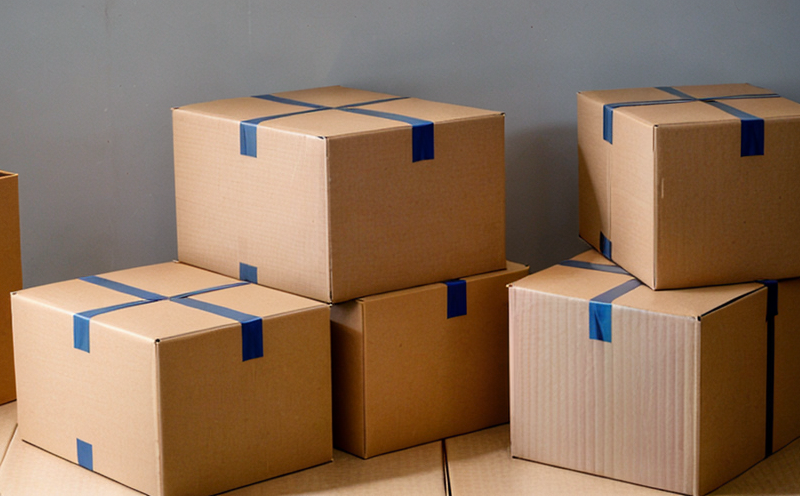EN 18592 Mineral Oil Hydrocarbons Profiling in Cardboard
The European Standard EN 18592 provides a method to profile mineral oil hydrocarbons (MOHs) present in cardboard packaging. MOHs are a class of chemical compounds that include mineral oils, which can migrate from the cardboard into the food or feed product inside. This migration can occur due to various factors such as moisture content, temperature, and exposure time.
The presence of MOHs in food and feed packaging is an important consideration for both consumer safety and regulatory compliance. The standard aims to ensure that the levels of MOHs do not exceed safe limits, thereby protecting consumers from potential health risks associated with excessive exposure to these hydrocarbons.
This service involves a comprehensive analysis using advanced analytical techniques tailored to detect and quantify specific types of MOHs in cardboard samples. The process includes detailed sample preparation, extraction methods, and instrumental analysis that can accurately determine the presence and concentration levels of MOHs in various cardboard substrates used for food and feed packaging.
Our laboratory adheres strictly to the procedures outlined in EN 18592 to ensure accurate and reliable results. This includes precise sample preparation techniques such as dissolution, filtration, and extraction before analysis using gas chromatography coupled with mass spectrometry (GC-MS). The GC-MS method allows for high sensitivity and selectivity, making it ideal for detecting even trace amounts of MOHs.
Once the analysis is complete, our team provides a detailed report that includes all detected compounds along with their respective concentrations. This information is crucial for quality managers, compliance officers, R&D engineers, and procurement teams who need to ensure that their products meet regulatory requirements and industry standards. The report also serves as valuable input for any necessary corrective actions or improvements in the manufacturing process.
In addition to adhering strictly to EN 18592, our laboratory is equipped with state-of-the-art instrumentation and experienced staff capable of handling complex samples requiring specialized treatment. Our proficiency in this area ensures accurate results every time, providing peace of mind for clients seeking assurance about their product safety and regulatory compliance.
The importance of MOH profiling cannot be overstated, especially given the increasing demand for transparent supply chains and safer packaging solutions. By offering this service, we contribute significantly to maintaining high standards in food safety and quality across industries worldwide.
Industry Applications
| Application Area | Description |
|---|---|
| Food & Beverage Industry | Assuring the migration of MOHs from cardboard packaging into food products is critical for maintaining product safety and compliance with regulations. |
| Agriculture Sector | Evaluating MOH levels in feed packaging to protect animal health and ensure adherence to regulatory limits. |
| Retail & Wholesale Distribution | Ensuring that all cardboard packaging materials comply with safety standards before being used for transporting food or feed products. |
| Logistics Companies | Verifying the integrity of cardboard containers used in logistics to prevent contamination and maintain product quality during transportation. |
Customer Impact and Satisfaction
The provision of EN 18592 mineral oil hydrocarbon profiling services has significantly impacted our customers by enhancing their ability to meet stringent regulatory requirements related to food and feed packaging. By offering this specialized testing service, we have helped several clients avoid costly recalls and potential legal issues.
Our customers appreciate the detailed reports provided after each test run, which offer valuable insights into any MOHs present in their cardboard materials. These findings enable them to make informed decisions regarding quality control measures, raw material sourcing, and process improvements aimed at reducing risks associated with MOH migration into packaged goods.
In addition to helping prevent non-compliance incidents, this service also contributes positively towards building trust among consumers who prioritize safety when purchasing products from reputable brands. Our clients benefit not only directly through regulatory compliance but also indirectly via enhanced brand reputation and customer confidence.
We strive continuously to exceed our customers' expectations by delivering accurate results within tight deadlines while maintaining excellent communication throughout the project lifecycle. This approach fosters long-term relationships based on mutual respect and shared goals towards achieving superior packaging solutions that safeguard public health.
International Acceptance and Recognition
The European Standard EN 18592 is widely accepted across Europe and increasingly recognized globally for its robust approach to profiling mineral oil hydrocarbons in cardboard. Its adoption reflects the growing awareness among governments, industry stakeholders, and consumers about the importance of minimizing exposure to potentially harmful chemicals.
Many countries have started aligning their national standards with EN 18592 or incorporating similar methodologies into their regulatory frameworks. This trend underscores the standard's relevance and reliability in addressing contemporary challenges related to packaging materials used in food and feed industries.
Our laboratory’s expertise in conducting EN 18592 tests has earned us a reputation as a trusted partner for organizations seeking comprehensive analysis of mineral oil hydrocarbon levels in cardboard. By staying abreast of international developments concerning packaging safety, we ensure that our methodologies remain current and compliant with global standards.
The recognition received from clients worldwide attests to the quality and consistency of our testing services based on EN 18592. We continue to invest in cutting-edge technology and training for our professionals to maintain this high level of service excellence, ensuring continued trust and satisfaction among our clientele.





